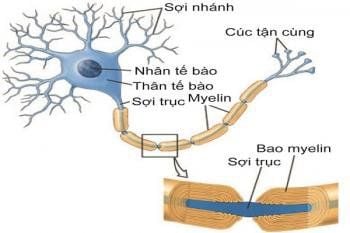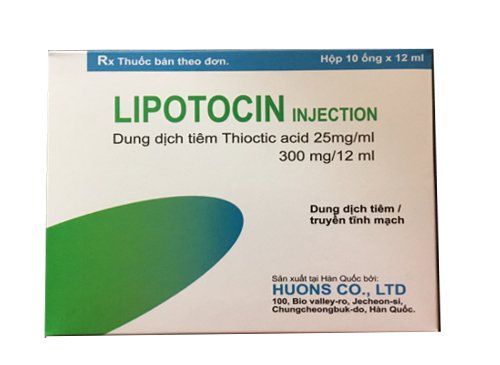This is an automatically translated article.
Chronic demyelinating polyneuropathy is a polyneuropathy that manifests in sensory impairments in the legs and arms. Patients with this disease need early treatment to ensure a higher chance of recovery.
1. What is chronic demyelinating polyneuritis?
Chronic demyelinating polyneuropathy (CIDP) is a neuromuscular disorder. Although symptoms vary from person to person, most people with CIDP may feel tired and have areas of numbness and pain. It can slow the reflexes of a CIDP wearer and weaken the arms and legs. If this symptom persists for at least 8 weeks, then there is a high chance that you have CIDP.
Most people with CIDP need treatment and treatment should start as soon as possible because the chance of a full recovery is higher. Symptoms of the disease can go away for a long time, but it can still come back after a while. Anyone can get CIDP, but it's fairly common in older adults and in men. Diagnosing someone with CIDP is not an easy task.
2. Causes of CIDP

Nguyên nhân gây ra bệnh CIDP là bởi viêm dây thần kinh và rễ thần kinh
Experts are uncertain about the causes of CIDP. What they do know is that it's caused by inflammation of the nerves and nerve roots. It can destroy the protective covering around nerves, called myelin, and can damage nerve fibers, slowing the nerve's ability to send signals. This is what causes pain, fatigue, and paralysis.
3. Is CIDP the same as Guillain-Barre syndrome (GBS)?
CIDP is not closely associated with Guillain-Barre syndrome. Both are neurological problems and both cause symptoms such as weakness and paralysis. But GBS usually shows up days or weeks after a person has an illness, such as an upset stomach. CIDP is not associated with disease. With Guillain-Barre syndrome, once treated, most people recover fairly quickly, while CIDP tends to last longer. In rare cases, people with untreated and unrecovered Guillain-Barre syndrome can develop CIDP.
4. How is CIDP diagnosed?
There is no test to diagnose CIDP . Instead, the doctor will learn about the patient's symptoms, such as when they started and how it feels. Your doctor will also do a thorough physical exam and may recommend tests to better understand what's going on with your nerves and rule out other causes.
In some cases, even though doctors may not be completely sure if a patient has CIDP, they still proceed with treatment. If symptoms improve, the patient has CIDP.
5. Treatment of CIDP

Corticosteroid có tác dụng làm giảm viêm và làm chậm hệ thống miễn dịch được dùng để điều trị CIDP
Early treatment is the key to success for CIDP patients. It can help prevent nerve damage and stop symptoms from getting worse.
Treatments may include:
Corticosteroids: These drugs work to reduce inflammation and slow down the immune system. Intravenous Immune Globulin (IVIG): Doctors may inject concentrated antibodies from healthy people to slow down the body's immune response Plasma exchange (PE): This treatment involves receiving a portion of blood IV to slow down the immune system Immunotherapy: These drugs interrupt the immune system to help stop it from attacking myelin. Stem cell transplant: In rare cases, a doctor may inject healthy stem cells to "reset" the immune system Physical therapy: Moderate exercise to provide more energy. Sometimes patients may feel they have control of their symptoms at one time, but find it difficult to control symptoms at another time. If over-the-counter pain relievers aren't enough to treat the pain that comes from CIDP, your doctor may prescribe other medications.
Patients can fully recover from CIDP, but they may have neurological damage, such as numbness and weakness, for the rest of their lives.
Chronic demyelinating polyneuropathy is a rather dangerous disease, causing many complications if not promptly and thoroughly treated. To register for examination and treatment at Vinmec International General Hospital, you can contact Vinmec Health System nationwide, or register online HERE.
References: webmd.com
MORE:
What is Peripheral Neuropathy? Causes and treatment of inflammation, peripheral neuralgia Common complications of trigeminal neuralgia













